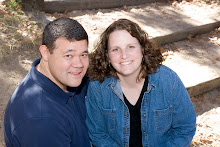The previous two posts contained the first four "hints" for training children by R.C. Ryle. I love his practical, timeless advise. Sometimes it is encouraging to read things written long ago. It is good to be reminded that the parenting joys and challenges we face today may look slightly different, but Biblical truth never changes.
5. Train your child to a knowledge of the Bible.
"See that they read it reverently. Train them to look upon it not as the word of men, but as it is in truth, the Word of God."
"See that they read it regularly. Train them to regard it as their soul's daily food." We have struggled over the years to have consistent family worship. Sometimes it can be discouraging when the busyness of life seems to prevent us from spending that time together as regularly as we would like. But it is encouraging to remember the cumulative effect of all of the hours that we have spent in God's word as a family.
"See that they read it all. Children understand far more of the Bible than we suppose." It is amazing what kids can understand and retain. I fear that many children see the Bible as little more than hero tales. The characters can easily take on fairy-tale proportions. When we teach the Bible to children, we must always emphasize the gospel and make the glory of God the focus rather than the feats of men.
6. Train them to a habit of prayer
"Prayer is the simplest means that man can use in coming to God. So long as you have a tongue to tell your soul's state, you may and ought to pray." We can teach our children to pray long before they can read. We can teach them what to say and how to say it. And we can encourage them not to be hasty, irreverent, or careless. I love to hear the children pray. It is always a blessing to my soul to hear them open their hearts to the Lord.
7. Train them to habits of diligence, and regularity about public means of grace.
The reality (at least in our home) is that Sundays are hard days. The "day of rest" is not actually very restful for us in some ways. We love our church and our souls are always fed when we are there, so in that sense it is restful. But it is also a busy day that can leave us physically exhausted. We have kept our children with us in the worship service since Kimberly was little. It takes a lot of training at first, but the fruit that worshiping together as a family bears is great and worth the trouble. We recently got the older kids new Bible covers which hold paper, pencil, Bible and mints. This has eliminated our usual Sunday morning scramble to find all of these things. We have begun to encourage the boys to write the sermon outline in their notebooks. Kimberly can pretty much take notes on her own now. And then there's me on the end of the row wrestling with Moriah for an hour and a half. Yes, we are back in that season of training with her! Thankfully, our church views children as part of God's covenant family and a little noise, and cheerios on the floor are expected, even welcomed. There is a real danger, I think, when church becomes a place where children must be constantly entertained. There is great gain in having them watch how their parents worship and learn to participate with God's people.
8. Train them to a habit of faith.
"I mean by this that you should train them up to believe what you say." The point that Ryle is making here is that children need to understand that you know some things that they don't. What you say is for their best whether they can see it right now or not. He warns against reasoning too much with young children. Let them just understand that you know what is best for them, and they can trust your judgement. I think this applies especially to very young children. As they get older, it is important to give more explanation for things. Haven't we all had a three year old say, "why?" twenty thousand times when a simple command was given? In our house, we train them to say, "yes, Mommy," or "yes, Daddy," rather than "why." When they continually ask for a reason to do what they have been told to do, I have been known to say, "for a reason." In other words, I have a reason, but you don't need to know it right now.
Ryle uses the excellent example of Isaac when his father, Abraham took him up Mount Moriah. He asked only one question, "where is the lamb?" His father said, "God will provide." and that was it. He believed that all would be well, because his father said so, and he was content. (This is where we found Moriah's name. It's meaning: God will provide. How fitting that has been for her life.)
There is a lot more that could be said about each of these, but hopefully they are at least some food for thought. If you can hang in there, we will eventually get through all of them. There are some good ones coming up!





1 comment:
I loved visiting your church and seeing all the families with many (many!) young children and the quiet and constant noise. It made the pressure so much less on having my babies remain *absolutely* quiet. Whenever I think of that visit, I sigh.
Thanks for posting these. Challenging, yet encouraging.
Post a Comment